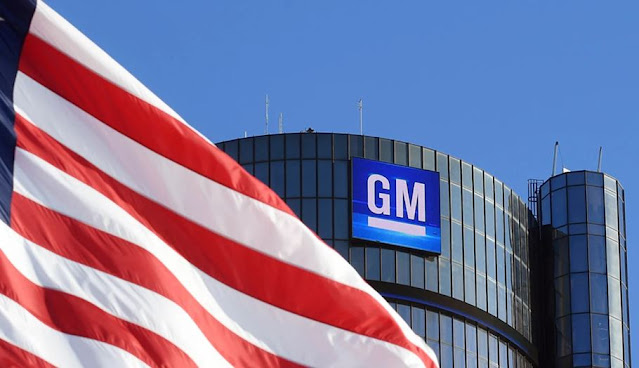General Motors Gears Up for Layoffs
The iconic American automaker General Motors (GM) has sent shockwaves through its Michigan workforce by announcing plans to lay off 1,300 employees starting in early 2024. This decision, driven by the discontinuation of two popular models – the Chevy Bolt and Camaro – casts a dark cloud over the carmaker's future in the state and raises critical questions about the evolving landscape of the automotive industry.
The Bolt Falls Silent: Orion Assembly Faces Closure
The largest chunk of the layoffs, impacting approximately 945 workers, will hit Orion Assembly in Lake Orion, Michigan. This plant, which has proudly produced the Chevrolet Bolt since 2016, will cease operations after the final Bolt rolls off the line in December 2023. While the Bolt was once hailed as a pioneer in the electric vehicle market, its production has been plagued by battery recall issues, ultimately leading to its demise.
Camaro's Farewell Lap: Lansing Grand River Assembly Downsizes
Across the state, another 369 workers at Lansing Grand River Assembly in Lansing, Michigan, will face the axe. This plant currently produces the iconic Chevrolet Camaro, a muscle car that has captivated car enthusiasts for generations. However, declining sales and a shift towards electric vehicles have sealed the Camaro's fate, prompting GM to shutter production at the Lansing facility.
Beyond the Numbers: Human Cost and Community Impact
The human cost of these layoffs is undeniably severe. 1,300 families will be directly affected, facing the loss of income, healthcare benefits, and stability. These job losses will also ripple through the local communities, impacting businesses and services that rely on the income generated by GM employees. The psychological impact of job uncertainty and the disruption of livelihoods will add another layer of hardship to this already difficult situation.
Reskilling and Redeployment: A Glimmer of Hope?
GM has acknowledged the weight of this decision and has pledged to offer affected employees support through severance packages and job placement assistance. Additionally, the company plans to invest in retraining programs to equip workers with skills relevant to its future endeavors, particularly in the electric vehicle space. Orion Assembly, for example, is slated to be retooled for the production of electric trucks starting in late 2025, potentially offering reemployment opportunities for some of the laid-off workers.
Shifting Gears: The Future of GM and the Automotive Industry
The decision to discontinue the Bolt and Camaro, leading to these layoffs, highlights the rapid transformation of the automotive industry. Consumer preferences are shifting towards electric vehicles and fuel-efficient models, forcing traditional carmakers like GM to adapt and innovate. While this transition is vital for long-term sustainability, it comes at a cost, as evidenced by the impact on Michigan's workforce.
Beyond Michigan: Global Repercussions and Policy Implications
The GM layoffs are not isolated to Michigan. The company has also announced plans for workforce reductions in other states and countries, reflecting the global nature of the automotive industry. This raises concerns about the potential for widespread job losses and the need for proactive policy interventions to support affected workers and communities. Governments and industry leaders must work together to ensure a smooth transition towards cleaner transportation while mitigating the human cost of such transformations.
Looking Ahead: Uncertainty and a Call for Action
The news of GM's layoffs has cast a long shadow over the future of the automotive industry in Michigan and beyond. While the company's commitment to retraining and redeployment offers a glimmer of hope for affected workers, the uncertainty surrounding the future remains. This situation serves as a stark reminder of the need for comprehensive policies that support workers during times of industry shifts and technological advancements. It is a call for collaboration between governments, businesses, and educational institutions to ensure that the transition to a greener future is not only environmentally sound but also socially responsible.

